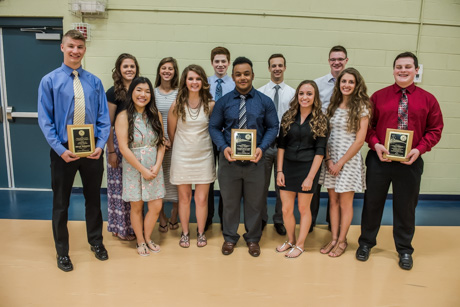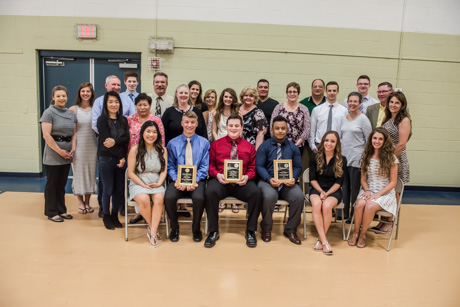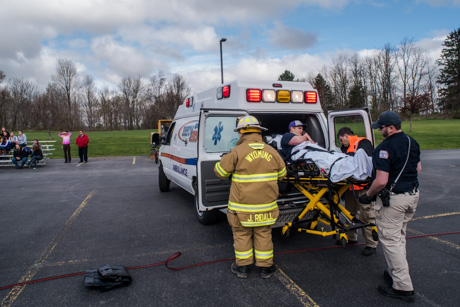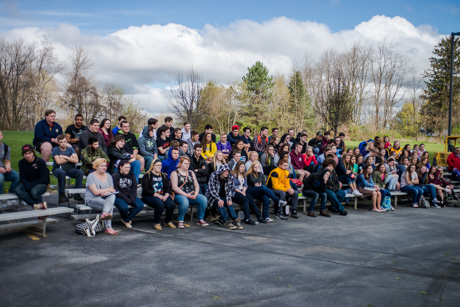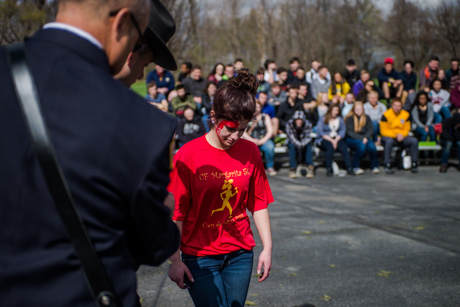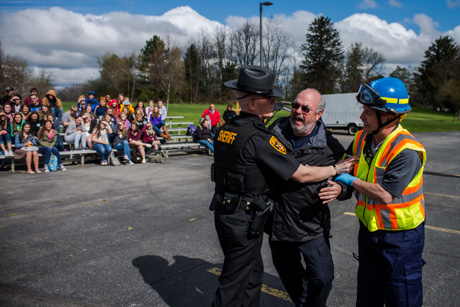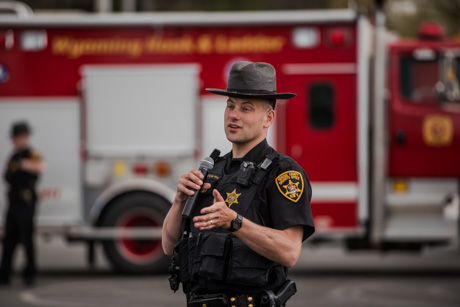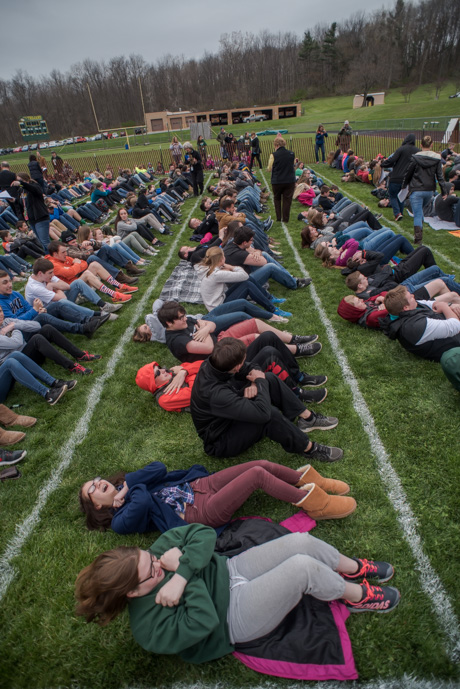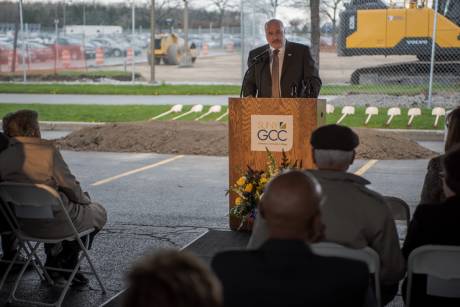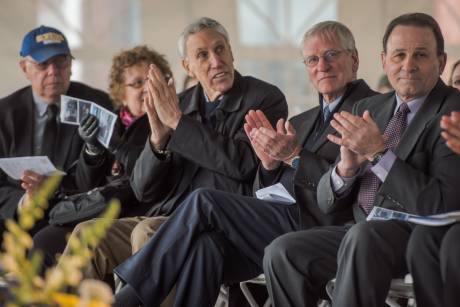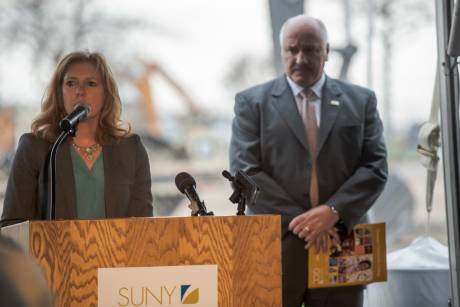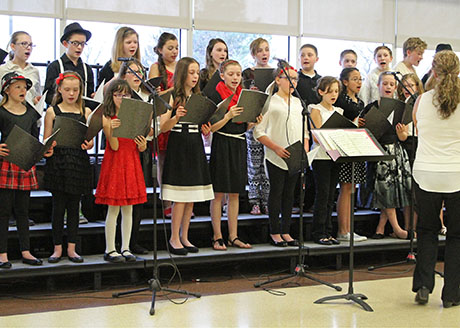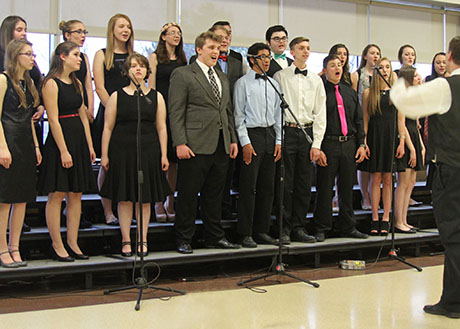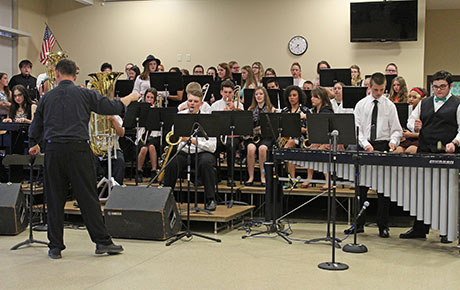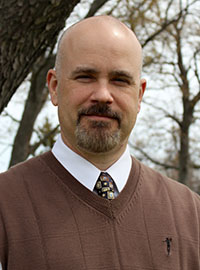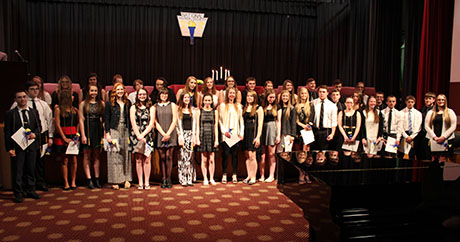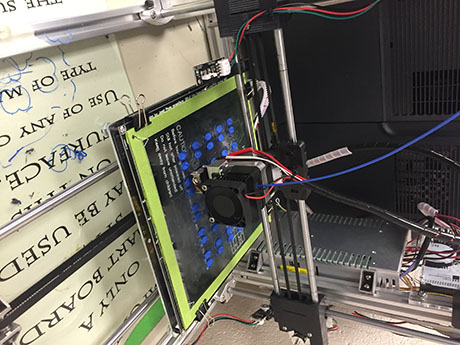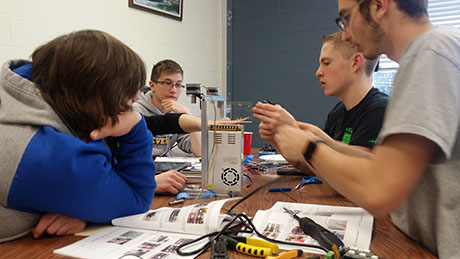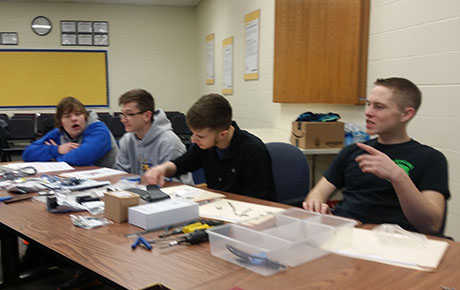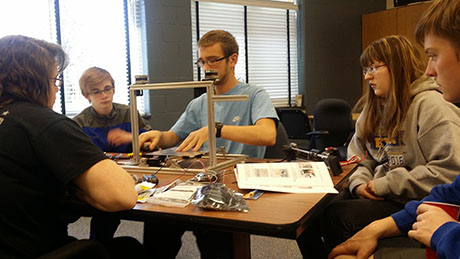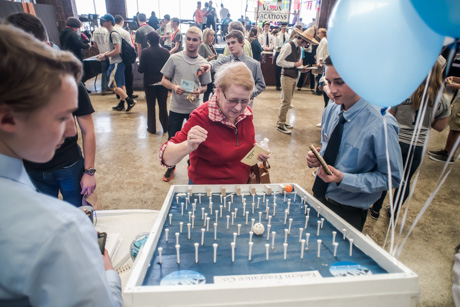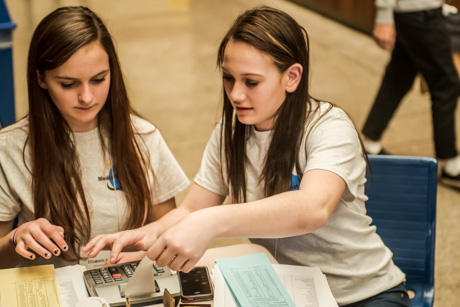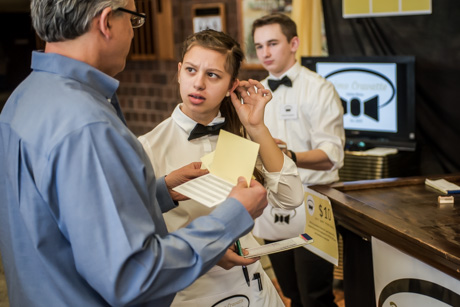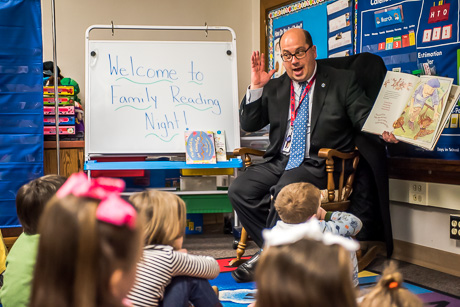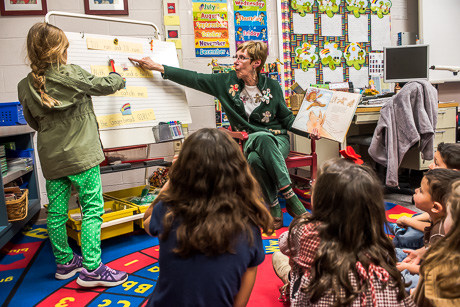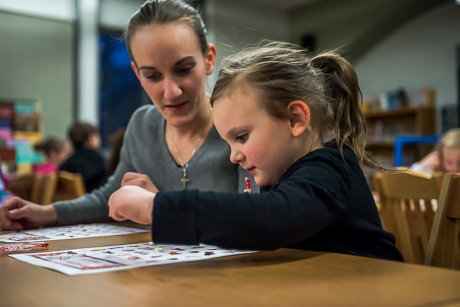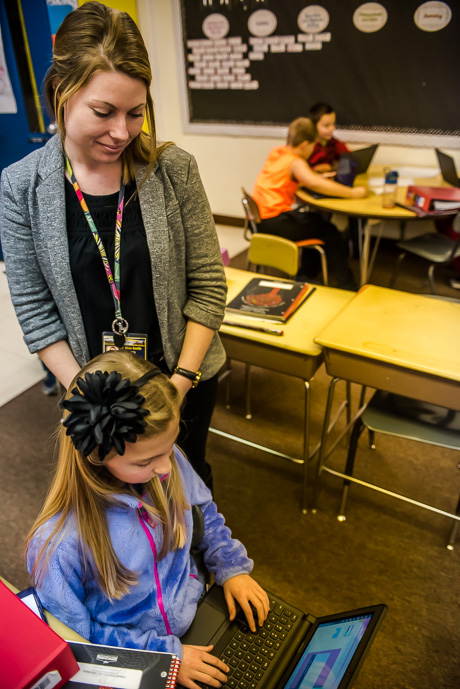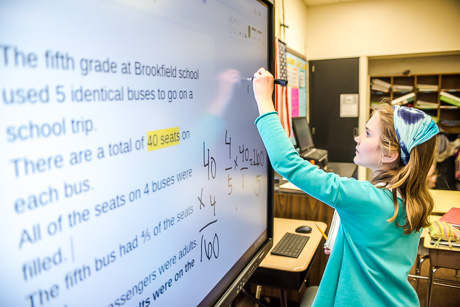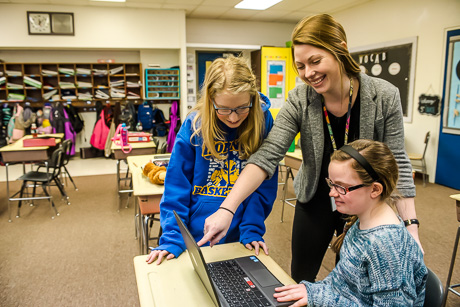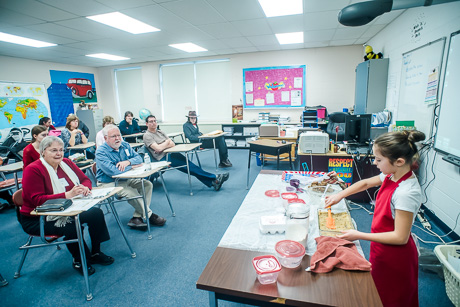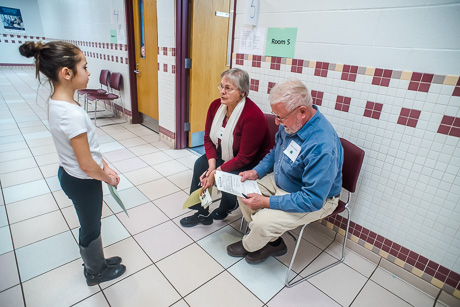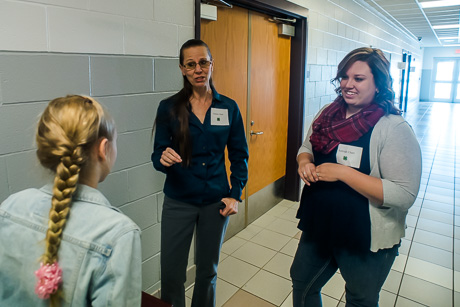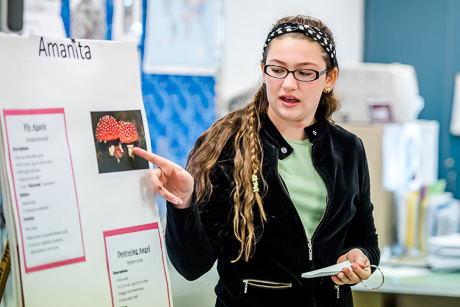Speaker tells Byron-Bergen seniors about drunken driving accident that claimed boyfriend's life
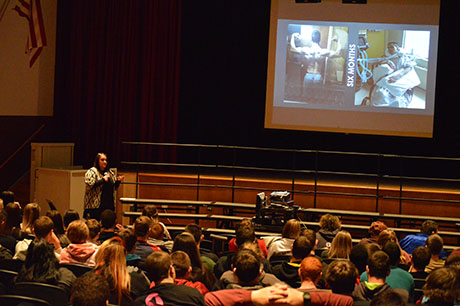
Press release:
Horrifying. Terrible. Stressful. Horrible.
Emotions ran high as Cady Glor spoke to Byron-Bergen juniors and seniors on May 10 to share the long-lasting effects of how a drunk driver changed her life.
Glor was smitten with Chris Blake, her high school sweetheart and boyfriend of eight years. In 2014, Blake was a passenger in a vehicle and his friend behind the wheel was intoxicated. An accident occurred which put Blake into the hospital with a broken neck.
“I remember the moment my mom called me to tell me that Chris was in the hospital,” said Glor. “It was like what you see in a movie. I fell on the floor. I was screaming and crying.”
“Seeing someone lying in a hospital bed with a breathing machine, someone who was so strong, is just devastating,” added Glor. “I still see it in my nightmares today.”
Blake spent months in the hospital but was confined to a wheelchair, was a quadriplegic, and had a tracheostomy tube to help him breathe. His body deteriorated from the strong physique he once had.
Talks of Blake going home began to happen as the summer ended and Blake knew that he wanted to share his story with schools, and help students understand the impact their decisions could have. Unfortunately, Blake ended up passing away in Aug. 22, 2014, after an infection entered his blood. Glor has since taken on the task of carrying out his wish and speaking to schools.
Byron-Bergen Jr./Sr. High School Principal Patrick McGee invited Cady in to speak to students because he knew that her message would resonate with students.
“Cady is such a courageous woman,” McGee said. “She told a story that is unfortunately all too familiar in our society and did it in a way that hit home with our students. There were very few dry eyes in our auditorium.”
Glor told the students that while she doesn’t know any of them, she cares about all of them. She encouraged the students to not drive drunk, to not get into a car with someone who is drunk, and to call someone for a ride no matter what the time or circumstance.
“Knowing that his death was preventable makes it a thousand times worse,” Glor said. “He chose to get into the car with a drunk driver and he paid the ultimate price.”

